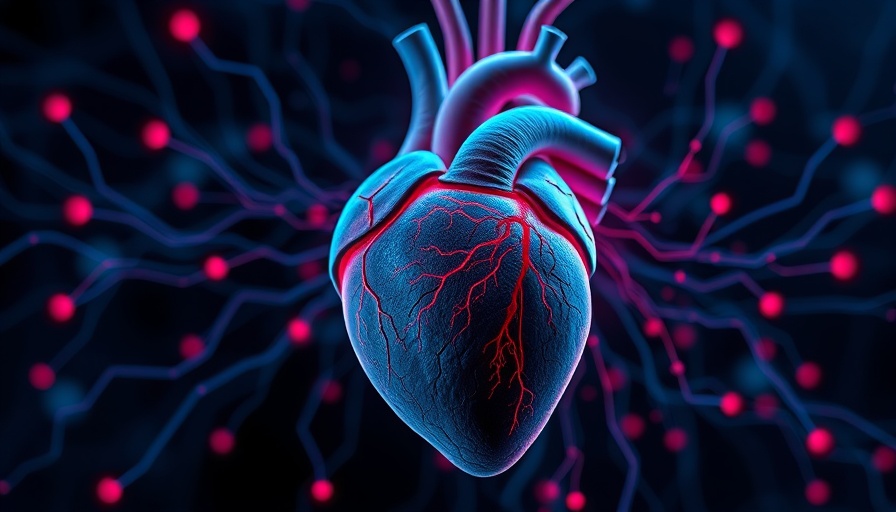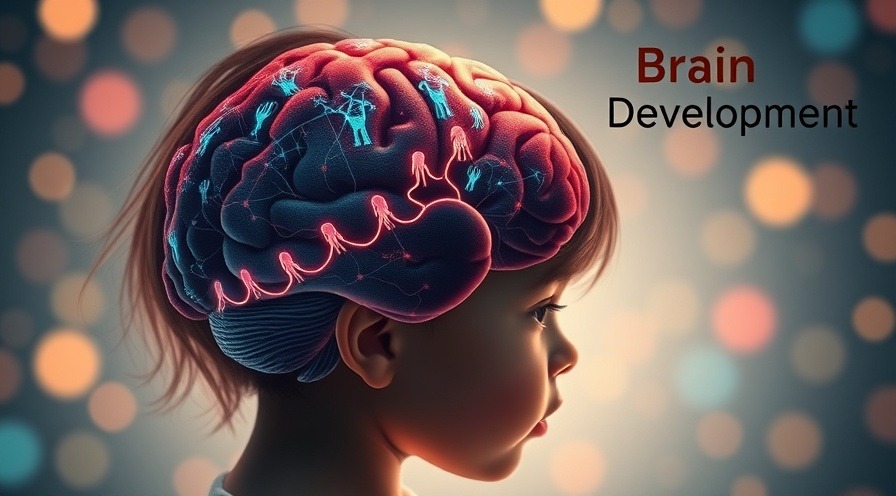
Understanding Stress and Its Cardiovascular Impacts
Stress is often referred to as a silent killer due to its significant long-term effects on physical health. When faced with a stressful situation, our body automatically triggers a cascade of physiological responses, most notably in the cardiovascular system. A recent study by researchers at the University of Tsukuba sheds light on how our brain's circuitry, particularly the lateral habenula, interacts with our cardiac responses during stress, tying together our emotional and bodily reactions in both intricate and unexpected ways.
Unraveling the Neural Mechanisms
The lateral habenula is a tiny region of the brain, but it plays a big role when it comes to our behaviors and bodily responses under stress. In their experiments, researchers activated neurons within this area of the brain and observed notable changes in the cardiovascular system, including fluctuations in blood pressure and heart rate. This study found that the dopamine system is crucial for mediating these responses, as disrupting dopamine transmission decreased the cardiovascular changes typically induced by lateral habenula activation.
The Role of Dopamine in Stress Responses
Dopamine is often recognized for its role in mood regulation and motivation but this research highlights its critical contribution to cardiovascular regulation during stressful incidents. Specifically, the ventral tegmental area in the midbrain, which is rich in dopamine neurons, emerged as a key player. When the researchers inhibited neuronal activity in this area, the expected changes in heart rate and blood pressure from stress were significantly blunted, outlining a clear neural pathway from emotional distress to physiological outcome.
Implications for Mental and Physical Health
This research offers a deeper understanding of how stress influences not only our emotional state but also poses a risk to physical health. As many professionals experience chronic stress due to the demands of high-pressure work environments, understanding these mechanisms is vital. Stress management techniques, such as mindfulness practices, deep breathing exercises, and effective relaxation techniques could play a critical role in mitigating these impacts.
Mindfulness and Relaxation Techniques for Busy Professionals
Given the pressures of modern life, busy professionals need accessible strategies to alleviate stress. For example, quick 5-minute stress relief techniques are highly beneficial in a busy work environment. Implementing simple practices such as deep breathing exercises — inhaling through the nose for a count of four, holding for four, and exhaling through the mouth for another four — can lower acute stress responses, balancing heart rate and blood pressure.
The Future of Stress Research
With further research into the connections between brain activity and cardiovascular responses under stress, there lies the potential to develop better interventions that promote heart health while managing stress. This could be invaluable for high-stress occupations where the toll of chronic stress manifests physically.
Real-Life Applications of Research Findings
Imagine walking into a hectic office filled with deadlines and pressures. Understanding that stress-induced responses can affect your body helps frame the urgency for implementing personal strategies. Knowing the science behind your body's reactions can empower a change in how you manage these feelings, leading to healthier coping mechanisms. Adopting practical insights, like incorporating quick mindfulness breaks throughout the day, can tremendously improve both mental well-being and physical health.
Final Thoughts
As we try to navigate the complexities of our professional lives, it’s crucial to prioritize mental and physical wellness. With evidence supporting the neural connection of stress and cardiovascular responses, it becomes clear that stress management shouldn’t just be an afterthought but a fundamental practice in our everyday lives. Embracing effective mindfulness strategies and recognizing the importance of relaxation techniques not only benefits us in the workplace but enhances our overall quality of life.
To further improve your well-being, consider exploring regular mindfulness exercises or integrating quick stress relief techniques into your daily routine. Small changes can lead to significant improvements in managing work stress and maintaining mental well-being. Embrace these tools and take proactive steps toward a healthier lifestyle.
 Add Row
Add Row  Add
Add 




 Add Row
Add Row  Add
Add 

Write A Comment